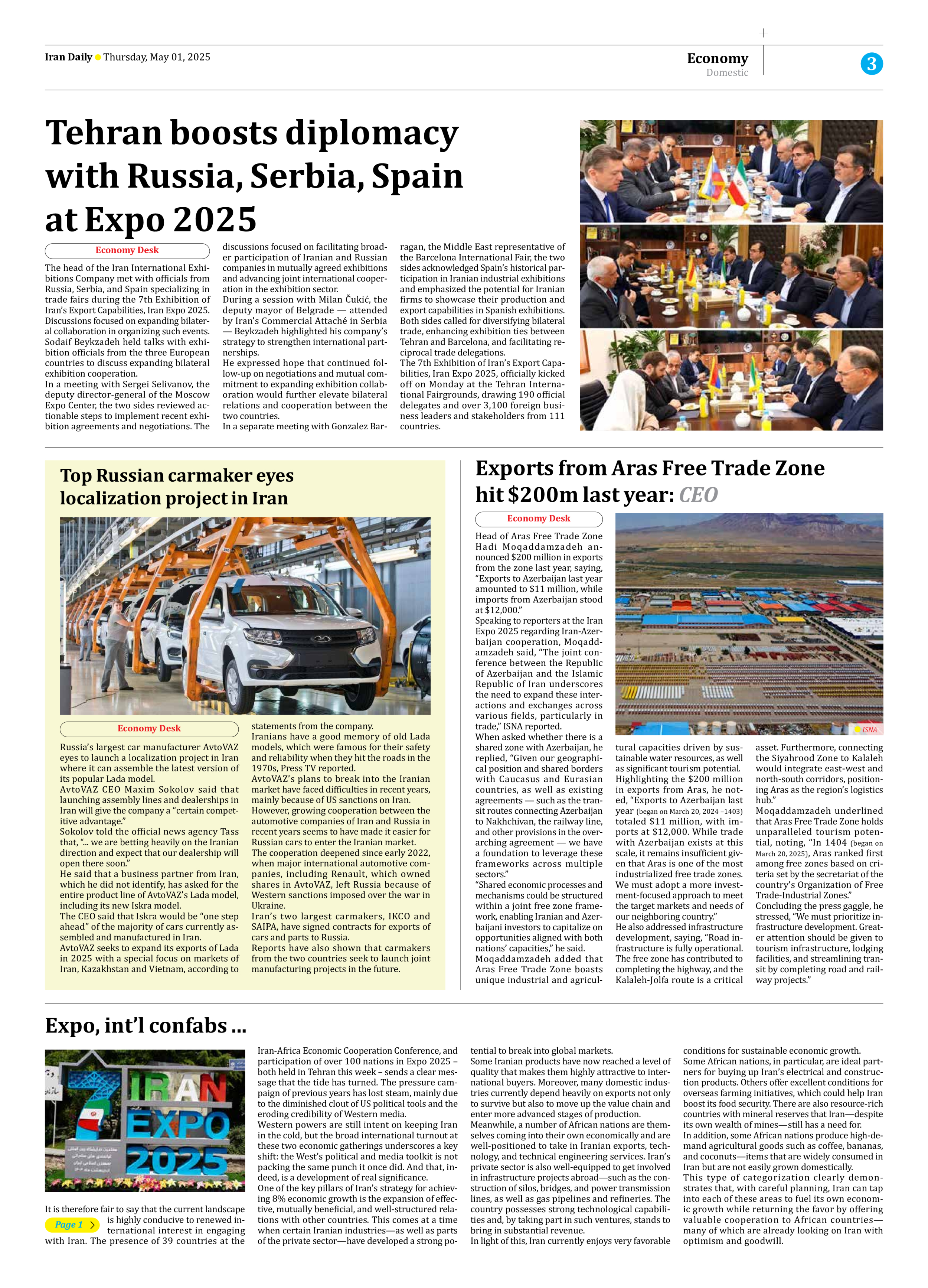
Expo, int’l confabs ...
Page 1
It is therefore fair to say that the current landscape is highly conducive to renewed international interest in engaging with Iran. The presence of 39 countries at the Iran-Africa Economic Cooperation Conference, and participation of over 100 nations in Expo 2025 – both held in Tehran this week – sends a clear message that the tide has turned. The pressure campaign of previous years has lost steam, mainly due to the diminished clout of US political tools and the eroding credibility of Western media.
Western powers are still intent on keeping Iran in the cold, but the broad international turnout at these two economic gatherings underscores a key shift: the West’s political and media toolkit is not packing the same punch it once did. And that, indeed, is a development of real significance.
One of the key pillars of Iran’s strategy for achieving 8% economic growth is the expansion of effective, mutually beneficial, and well-structured relations with other countries. This comes at a time when certain Iranian industries—as well as parts of the private sector—have developed a strong potential to break into global markets.
Some Iranian products have now reached a level of quality that makes them highly attractive to international buyers. Moreover, many domestic industries currently depend heavily on exports not only to survive but also to move up the value chain and enter more advanced stages of production.
Meanwhile, a number of African nations are themselves coming into their own economically and are well-positioned to take in Iranian exports, technology, and technical engineering services. Iran’s private sector is also well-equipped to get involved in infrastructure projects abroad—such as the construction of silos, bridges, and power transmission lines, as well as gas pipelines and refineries. The country possesses strong technological capabilities and, by taking part in such ventures, stands to bring in substantial revenue.
In light of this, Iran currently enjoys very favorable conditions for sustainable economic growth.
Some African nations, in particular, are ideal partners for buying up Iran’s electrical and construction products. Others offer excellent conditions for overseas farming initiatives, which could help Iran boost its food security. There are also resource-rich countries with mineral reserves that Iran—despite its own wealth of mines—still has a need for.
In addition, some African nations produce high-demand agricultural goods such as coffee, bananas, and coconuts—items that are widely consumed in Iran but are not easily grown domestically.
This type of categorization clearly demonstrates that, with careful planning, Iran can tap into each of these areas to fuel its own economic growth while returning the favor by offering valuable cooperation to African countries—many of which are already looking on Iran with optimism and goodwill.







